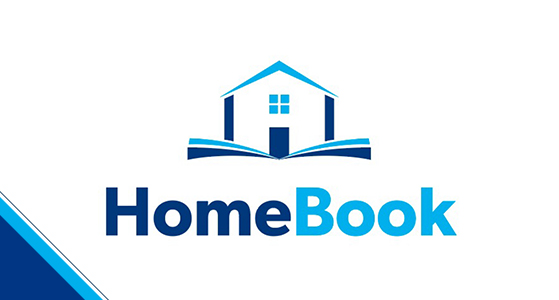
The CEO Turning Post-Sale Pain into Developer Gain
Biz Tech Outlook sat down with Alex Minashi, Founder & CEO of HomeBook, to discuss how he is transforming one of the most overlooked yet critical aspects of property development: the buyer handover experience. In this exclusive interview, Alex reveals what inspired HomeBook’s creation, how the platform is reshaping the buyer journey from reservation to post-move-in care, and why AI-driven workflows are turning operational challenges into opportunities for developers worldwide.
What first exposed the operational friction in traditional handovers- and when did you realise that legacy processes couldn’t meet modern buyer expectations?
The first signs of operational friction became evident while working on large-scale property developments, where I repeatedly witnessed the same challenge: handover processes that were fragmented, highly manual, and inefficient. Instead of delivering a smooth conclusion to months of anticipation, these outdated methods created unnecessary delays and eroded buyer confidence at the very moment when trust should have been strengthened. What should have been a seamless and memorable experience often turned into a frustrating one, leaving buyers with unanswered questions and scattered documentation.
The true turning point came on a personal level when I purchased my own home. Despite being on the receiving end this time, I encountered the same inefficiencies firsthand. The information for what was arguably my most important investment was scattered across emails, binders, and conversations leaving me overwhelmed and disappointed. That personal experience highlighted a systemic flaw in the industry and ultimately inspired the creation of HomeBook, a solution designed to meet the expectations of today’s buyers.
How does HomeBook reshape the full buyer journey – from pre-sale through post-move-in – and what measurable gains does this deliver for developers?
HomeBook is designed as the operating system for the entire property journey, ensuring continuity and clarity from the first reservation through to life in the home. The experience begins the moment a buyer or renter reserves, when they gain access to a branded app tailored to their development. This platform delivers timely updates, immersive visuals, and transparent payment milestones building confidence long before move-in day. Following handover, the app transitions into a single, centralised hub where buyers can securely access documents, track updates, and resolve issues without the frustration of chasing emails, portals, or scattered attachments.

For developers, the measurable impact is substantial. By automating document delivery, triaging defects, and streamlining communication, HomeBook saves up to 425 administrative hours for every 100-unit project. Support requests drop significantly, every interaction is logged for compliance, and transparency strengthens the developer–buyer relationship. Most importantly, the user response speaks volumes: 83% of buyers describe the convenience of HomeBook’s technology as “extremely satisfying,” turning handovers into a true brand-building moment.
What makes HomeBook fundamentally different from portals or customer support tools – and why is it the only system designed for lifetime homeowner engagement?
What sets HomeBook apart is its ability to move far beyond the limitations of portals or traditional customer support tools. Portals function much like handing someone a CD in the age of Spotify they can store documents, but they cannot automate workflows, centralise communication, or evolve with a homeowner’s changing needs. Today’s buyers expect far more: personalised convenience, real-time updates, and seamless digital access to every aspect of their investment.
HomeBook delivers exactly that by consolidating fragmented systems into a single, branded app that supports the entire lifecycle of homeownership. From reservation to post-move-in care, it streamlines developer operations while offering homeowners one intuitive hub. More importantly, it is designed for longevity. With AI powering every interaction, HomeBook evolves into a lifetime engagement platform, enabling homeowners to manage documents, updates, and home-related tasks effortlessly truly putting “your home in your hand, for life.”
How have you navigated the resistance to change within traditional property teams – and what’s worked in accelerating developer adoption?
The biggest barrier we’ve encountered isn’t so much resistance as it is bandwidth. Sales and Customer Care teams are often stretched thin, and anything “new” is initially perceived as an additional burden. The breakthrough happens the moment they experience the platform firsthand seeing how automation simplifies repetitive tasks, consolidates communication, and reduces their workload rather than adding to it. That shift in perspective quickly turns initial hesitation into strong engagement.
Of course, a small segment of the industry still clings to an old-school mindset, hesitant to embrace AI workflows or dismissive of the buyer experience as a differentiator. But that approach is increasingly out of step with today’s market expectations, were convenience and transparency drive brand loyalty. Developers are already managing documents, defect resolution, and buyer communication; the only real question is whether they want to continue doing so through scattered folders and endless email threads or through a single, branded, automated platform that elevates both efficiency and customer satisfaction.
With developers facing cost and staffing pressures, how does HomeBook deliver a measurable ROI – and what’s the typical payback period per unit?
In an environment where developers are under increasing cost and staffing pressure, HomeBook delivers measurable returns by driving efficiency from day one. By automating key tasks such as communication, document management, and defect resolution, the platform immediately reduces administrative overhead delivering average savings of $35,000 per 100 units. That equates to a 145% return on investment when compared with the costs and limitations of traditional portals. Importantly, this impact is not theoretical; the savings are realised within the first cycle of usage, making the payback period per unit exceptionally fast.

Beyond direct cost savings, HomeBook also generates strategic value by providing developers with portfolio-wide visibility. Insights into buyer satisfaction, service trends, and contractor performance allow teams to proactively address issues, reduce escalations, and strengthen their brand reputation. The result is a dual benefit: developers lower operating costs while simultaneously improving customer experience a combination that ensures the platform pays for itself quickly and continues to deliver value across the lifecycle of every project.
Why is buyer experience now a board-level issue for developers – and how does HomeBook move this from an afterthought to a strategic advantage?
In today’s flat housing market, buyer experience has become a board-level priority because it is one of the few levers developers can truly control. Price, location, and build quality are largely fixed, but how a buyer feels throughout the journey—and long after move-in—directly shapes brand perception. For most people, a new-build home is the single largest investment they will ever make, and with that comes an expectation of premium service. Buyers paying for modern homes expect a seamless, digital-first experience that mirrors the convenience they encounter in other industries.
This is where HomeBook transforms the process from a functional necessity into a strategic advantage. By equipping every buyer with a customised app, developers deliver transparency, convenience, and continuity from reservation through post-move-in care. It not only reduces administrative pressure but also creates an ongoing, branded connection that strengthens loyalty and reputation. Beyond individual projects, HomeBook’s insights surface portfolio-wide trends, enabling developers to refine operations and differentiate in a competitive market. Buyer experience is no longer an afterthought it’s the new brand currency.
What role does AI play in your roadmap – particularly around satisfaction analysis, triaging, or personalisation?
Artificial intelligence sits at the core of HomeBook’s roadmap, serving as the foundation for delivering a smarter, faster, and more personalised homeowner experience. Rather than functioning as an add-on, AI powers automation across every stage of the journey. It streamlines handovers by ensuring documents and updates are delivered seamlessly, triages defects with speed and accuracy, and even responds to homeowner queries dramatically reducing the need for manual review.

For developers, the benefits extend well beyond efficiency. AI provides real-time visibility into buyer sentiment through embedded satisfaction scoring and service trend analysis, effectively acting as a digital analyst on every project. This empowers teams to identify pain points early, benchmark contractor performance, and make data-driven improvements without increasing headcount. On the homeowner side, AI enables a level of personalisation and responsiveness that matches modern expectations, strengthening trust and satisfaction. In short, AI is not just enhancing operational efficiency; it’s redefining how developers engage with buyers and turning customer experience into a measurable strategic asset.
What advice would you give to other entrepreneurs trying to disrupt legacy industries?
For entrepreneurs looking to disrupt legacy industries, my first piece of advice is to manage your expectations. Even if you believe you’ve built the perfect solution, don’t assume that customers will immediately embrace it. Most people are busy, comfortable with existing processes, and reluctant to explore alternatives. At the beginning, you should fully expect to be ignored and it’s important not to take that rejection personally. Resilience is a critical part of the entrepreneurial journey.
The second lesson is to remember that no one cares about your product in isolation; they care about solving their own pain points. Position yourself less like a scientist showcasing innovation, and more like a pharmacist prescribing the right remedy. Speak the language of outcomes, not features.
Finally, stay relentlessly adaptable. The market is constantly offering feedback sometimes directly, sometimes indirectly. Listen closely, iterate quickly, and let real-world needs guide your roadmap. True disruption is built through persistence, empathy, and continuous learning.
“Seamless handovers, smarter workflows, stronger buyer trust.”
“HomeBook transforms experience into advantage.”
“Redefining the Buyer Journey with “Your Home in Your Hand, for Life”


Company Name : HomeBook
Website : https://home-book.co.uk/
Management Team
Alex Minashi | Founder & CEO



